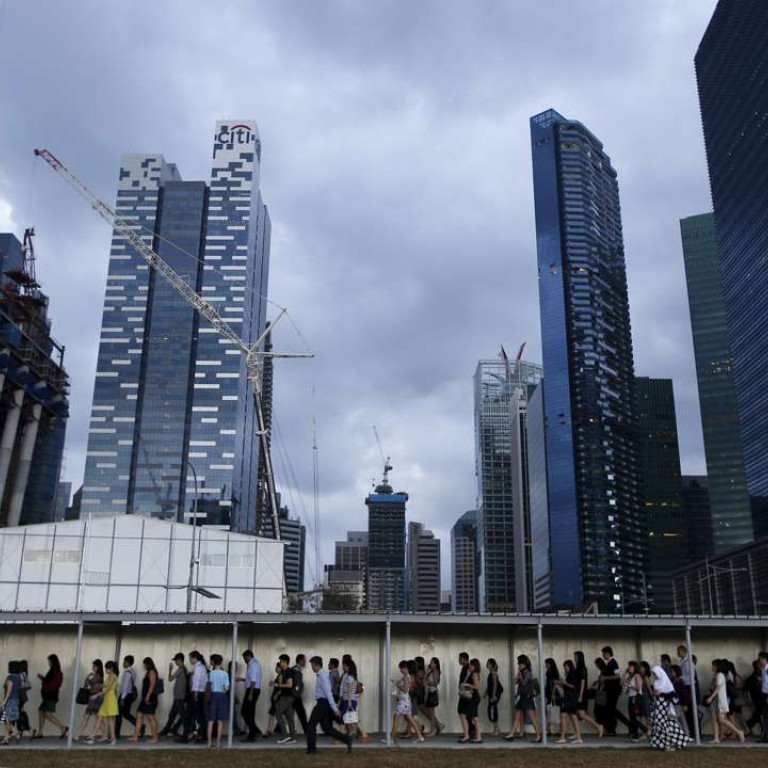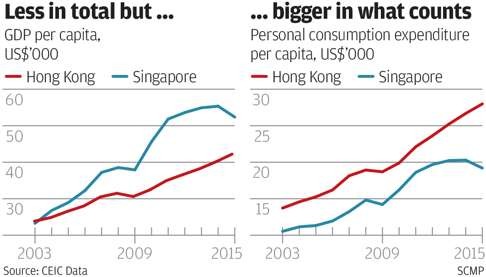
Singapore’s pension fund is not a model for Hong Kong to follow
When the boss takes investment decisions out of the hands of the citizens, you just get poorer citizens
Hong Kong should follow Singapore’s model in allowing employees to use part of their provident fund savings to buy their first property, according to the regulator of the city’s pension fund.
SCMP, June 10
Here we go again. We have to do it because Singapore does it. Let me offer a contrary thought to this seemingly irrefutable reasoning. Singapore does a lot of fool things. Let’s be glad we’re not Singapore.
The two charts below make one essential difference clear. The first shows you gross domestic product per capita in US dollar terms. Singapore’s is clearly the greater, arguably because of a strong currency throughout most of the period, but greater nonetheless.
The second chart shows you the difference in personal consumption expenditure per capita, which is you and your disposable income, and here Hong Kong comes up as almost 50 per cent greater than Singapore. We have 66 per cent of our GDP available for personal consumption. The equivalent figure in Singapore is only 36 per cent.

But, yes, it’s true that he does not have to wait until retirement to get it all back again. He is allowed to put some of that CPF money into buying a home, or even medical costs. This is now the idea that our own bureaucrats are talking of emulating for our MPF.
What makes it immediately a silly idea is that our property prices are so high and our MPF contributions so low that dipping into the MPF pot would barely pay off the cost of the stamp duty for the purchase of a home. It’s a non-starter unless our MPF contribution rates are jacked up to Singapore levels.
Singapore has a boss culture. You do what the boss tells you
And the reason this would be a bad idea is that Hong Kong’s economy is still based on an entrepreneurial culture. The personal disposable income that would vanish with Singapore level contributions now provides the essential equity capital for the small businesses that make this place the success it is.
Things aren’t quite that way in the Lee Kingdom. Singapore has a boss culture. You do what the boss tells you. This makes for a clean shiny city with an administrative rather than entrepreneurial culture, which lives mostly by feeding, parasite fashion, on neighbouring economies.
Hong Kong does it, too, although not to the same extent, but Singapore’s real problem is doing it badly. The boss has a woeful investment record. Where Singapore with its longstanding, vast current account surplus should be living off foreign investment earnings, it is still paying them out heavily.
And there you have a lesson of the CPF. When the boss takes investment decisions out of the hands of the citizens this way and puts them in his own, you just get poorer citizens. Let’s not do what Singapore does.

